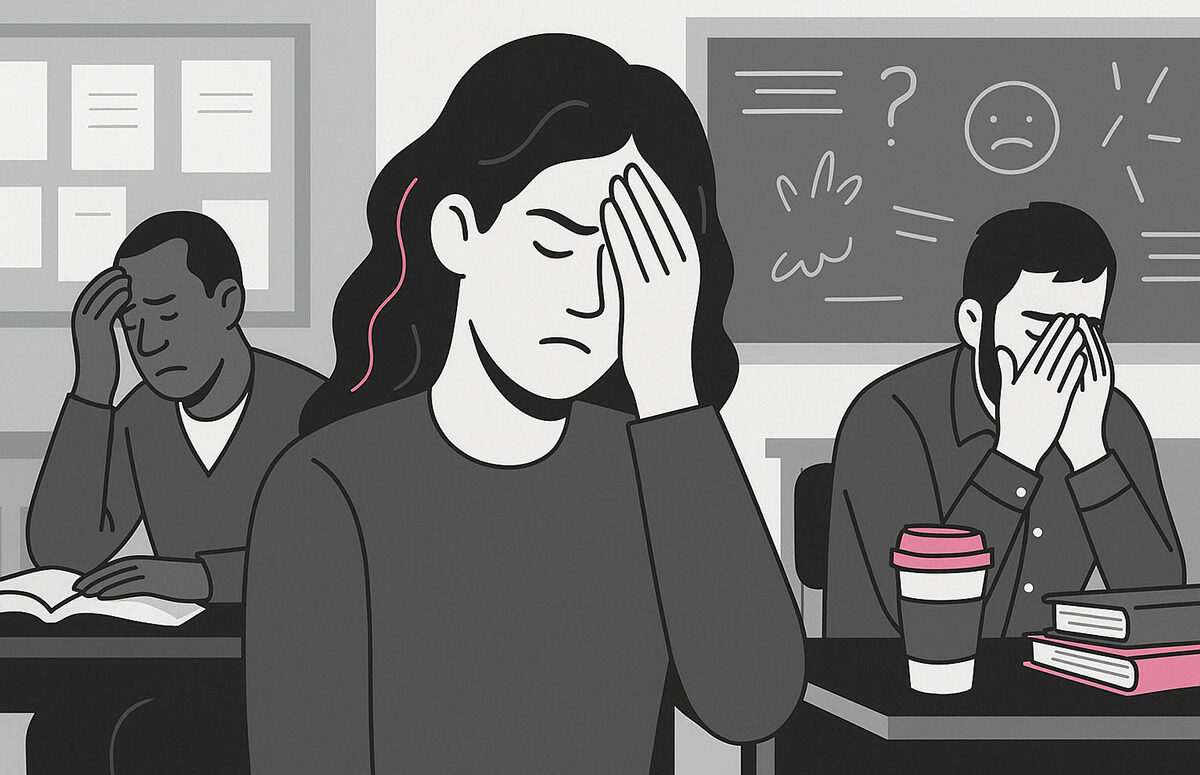I have explored this topic before, but every year I am reminded of the mess, and every year it makes me question whether I or indeed anyone else should consider this a viable career. The mental health strain is undeniable.
Education should be about young people. Yet, in many schools, the toxic culture takes root—one where certain members of leadership dedicate every waking moment to the institution, and they expect everyone else to do the same, as Aldous Huxley said: ‘Community, Identity, Stability’. These individuals often don’t have the same responsibilities as classroom teachers, but their overcommitment becomes the standard. If you’re not staying late, taking on extra duties, or responding to emails at all hours, you’re not “dedicated enough.” The result? Guilt. Exhaustion. Burnout. This is not commitment—it’s coercion.
Issue
The issue is simple: some leaders create a culture where working excessive hours is the unspoken expectation. They do it themselves, so everyone else must follow. There’s no explicit rule, just a creeping sense that if you don’t put in extra hours, you’re somehow letting the school down. Indeed the use of the words team, family, togeher are used as devices to exploit. This isn’t about improving outcomes for students—it’s about performative loyalty to an institution that will replace you the second you collapse. And let’s be clear: this culture benefits no one but the people who impose it.
Teachers with families, responsibilities outside of school, or even just a basic sense of work-life balance are made to feel inadequate. If you leave on time, you’re seen as less committed. If you say no to an extra task, you’re not a team player. And if you dare to question the culture? Expect passive-aggressive comments about “what’s best for the students.”
Roots
Why does this culture exist? Firstly, leadership positions are often filled by people who either have fewer classroom responsibilities or have convinced themselves that their personal sacrifice is a badge of honour. Many senior leaders are no longer in the fuck holes of daily teaching, dealing with the relentless marking, behaviour management, and planning. Their version of workload is different, but they assume everyone else has the same flexibility.
Secondly, education as a profession is riddled with guilt. The idea that teaching is a “calling” rather than a job has been weaponised against teachers for decades. If you truly care, you’ll work late. If you really want to make a difference, you’ll answer emails at 10pm. This manipulative nonsense persists because, unfortunately, too many people buy into it. It also harks back to a day and age where teaching was based on a social contract, rather than an economic one.
Thirdly, systemic underfunding means that schools are constantly trying to do more with less. Rather than fight for better conditions, some leaders find it easier to guilt their staff into absorbing the shortfall with unpaid labour. Why demand more funding when you can just demand more hours?
Impact
This culture damages students. Teachers who are overworked and burnt out do not deliver their best lessons. They are exhausted, short-tempered, and less able to engage effectively. The guilt-ridden, overworked teacher is not a better teacher—they are a ticking time bomb.
Students see adults modelling an unhealthy relationship with work. They learn that success means sacrificing personal time, that stress is normal and toxic resilience is essential, and that burnout is just part of life. In what world is this a lesson we should be fucking teaching?
Additionally, high turnover rates in education are directly linked to this toxic culture. Great teachers leave because they refuse to give every waking moment to the job. Students lose experienced, passionate educators, and the cycle continues.
Change
Leadership must recognise that staying late and sending emails at all hours is not a sign of commitment—it’s a failure to set boundaries. Schools should actively discourage presenteeism and reward efficiency over performative overwork.
Second, unions and professional bodies must take a stronger stance. Workload expectations should be clear and reasonable. If a school cannot function without teachers working unpaid overtime, the problem is with the system, not the staff.
Third, resist the fucking guilt. Leaving on time is not a crime. Saying no to extra duties is not unprofessional. Your value as an educator is not measured by how much of your personal life you are willing to sacrifice.
Conclusion
This culture won’t change overnight, but it must change. Teachers should not have to choose between their well-being and their profession. Leadership must lead by example, valuing balance over burnout. Schools should prioritise sustainability over sacrifice. And educators at every level must stop feeding the myth that giving everything is the only way to be good at your job.
Work your contracted hours. Go home. Be with your family. And never feel guilty for doing so.

